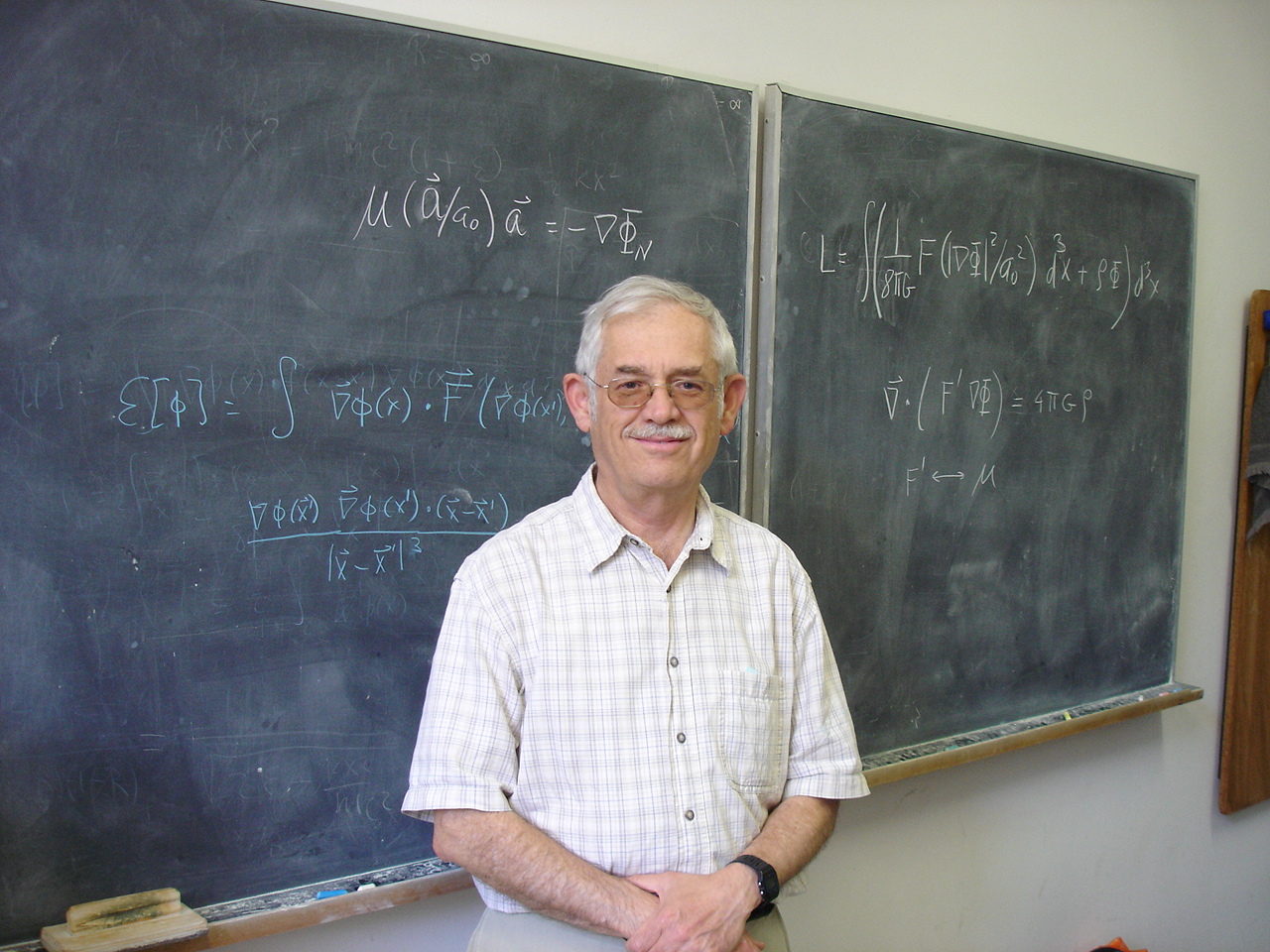
August 16, 2015
Physicist Jacob Bekenstein, whose work on black holes advanced efforts to create a theory of quantum gravity, dies of a heart attack at age 68 in Helsinki, Finland, where he is scheduled to give a lecture.
Born in Mexico City in 1947 to Polish Jewish immigrants, Bekenstein became a U.S. citizen in 1968. He presented his breakthrough theory relating the entropy of a black hole to its surface area in his doctoral thesis at Princeton in 1972. Stephen Hawking rejected the Bekenstein theory until he did his own calculations using quantum physics and produced a result that showed what had been unthinkable: Black holes emit radiation. Today, that radiation is known as Bekenstein-Hawking radiation. Its discovery is a landmark toward the creation of a theory of quantum gravity, which would combine Albert Einstein’s theory of relativity, which operates at the macro level, with quantum mechanics, which works in the subatomic realm.
Bekenstein made other important discoveries about black holes and theoretical physics. He suggested the no-hair theorem of black holes, helped develop the theory of modified Newtonian dynamics and demonstrated the Bekenstein bound. He joined the faculty of Ben-Gurion University of the Negev in 1974 and rose to chairman of the astrophysics department. He moved to the Hebrew University of Jerusalem in 1990 and was professor emeritus of theoretical physics there at his death.
Bekenstein won the Wolf Prize in 2012 and the Einstein Prize in 2015, both of which are often precursors to the Nobel Prize in physics, but the Nobel is not awarded posthumously.
